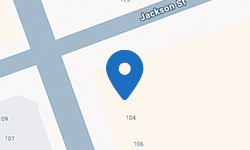Should I Talk to Police During Traffic Stop Nassau County?
Getting pulled over by police in Nassau County can be nerve-wracking. Your heart races, your palms sweat, and you might feel the urge to explain everything or say nothing at all. One of the most common questions people ask after a traffic stop is: “Should I have talked to the officer?”
The answer isn’t simple, and it depends on your specific situation. Here’s what every Nassau County driver should know about their rights during a traffic stop.
Your Constitutional Rights During a Traffic Stop
You have the right to remain silent under the Fifth Amendment to the U.S. Constitution. This means you don’t have to answer questions beyond providing basic information like your license, registration, and insurance.
However, traffic stops are different from other police encounters. You are legally required to provide certain documents when asked by an officer.
What You MUST Provide During a Traffic Stop in New York
New York law requires you to show police:
- Your driver’s license
- Vehicle registration
- Proof of insurance
Refusing to provide these documents can result in additional charges. You must hand these over if the officer asks, but you can do so without engaging in conversation.
What You DON’T Have to Answer
You are not required to answer questions like:
- “Do you know why I pulled you over?”
- “Have you been drinking tonight?”
- “Where are you coming from/going to?”
- “Do you have anything illegal in the car?”
- “Can I search your vehicle?”
When Talking Might Help
In some minor traffic situations, being polite and cooperative might result in:
- A warning instead of a ticket
- A lesser charge (like a parking ticket instead of a moving violation)
- The officer’s goodwill if you’re clearly not impaired or dangerous
For simple speeding tickets or minor violations, basic politeness without admitting guilt often works best.
When You Should Stay Silent
You should strongly consider remaining silent if:
- The officer suspects you of DWI/DUI
- You’ve been drinking any amount of alcohol
- There might be something illegal in your car
- You’re unsure about the facts of what happened
- The officer seems to be building a case for a serious charge
The Nassau County Reality
Nassau County police officers are generally professional, but they’re also trained investigators. Anything you say can be used against you in court. Even innocent comments can be twisted or misunderstood.
For example, saying “I only had two beers” admits to drinking and driving, even if you’re under the legal limit. Saying “I was trying to keep up with traffic” admits to speeding.
How to Handle the Conversation
If you choose to speak with the officer:
DO:
- Be polite and respectful
- Keep your hands visible
- Follow instructions
- Stay calm
DON’T:
- Admit to any wrongdoing
- Volunteer information
- Argue or become confrontational
- Lie (this can make things much worse)
The Bottom Line for Nassau County Drivers
For minor traffic violations where you’re clearly not impaired, being polite while providing required documents often leads to the best outcome. But if there’s any chance of serious charges – especially DWI – staying silent and asking for an attorney is usually your best protection.
Remember: Police officers are doing their job, and part of that job is gathering evidence. Your job is to protect yourself legally while being respectful.
Final Thoughts
There’s no perfect answer to whether you should talk during a traffic stop. Every situation is different. But understanding your rights and the potential consequences of your choices can help you make the best decision in the moment.
When in doubt, providing required documents while politely exercising your right to remain silent is often the safest approach. You can always explain your side of the story later with an attorney present.
Remember: anything you say during a traffic stop can follow you into court. Choose your words carefully, or consider not using any words at all beyond what’s legally required.










